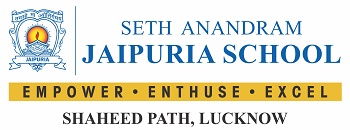What is Open Book Exam that CBSE Plans to Conduct
 The Central Board of Secondary Education (CBSE) is looking at a major shift in its examination system by introducing Open Book Exams for students from Classes 9 to 12.
The Central Board of Secondary Education (CBSE) is looking at a major shift in its examination system by introducing Open Book Exams for students from Classes 9 to 12.
Proposed in the National Credit Framework (NCrF), an ‘Open Book Exam’ is a significant switch from the traditional way of conducting examinations.
Here’s a breakdown of what we know so far:
What is an Open Book Exam?
An ‘Open Book Exam’ is simply an assessment format where students are allowed to refer to approved resources, such as textbooks, notes, and other materials while answering the questions.
However, memorisation isn’t the key here. These exams are designed to assess students’ critical thinking and problem-solving skills. The goal is to evaluate the student’s ability to apply knowledge, analyse information, and think critically.
The format and specific rules may vary, but usual common characteristics may include case studies.
For instance, a question may ask to “read the provided case study and answer questions related to the issues presented”. Students may need to support the answers with references to the textbook and other course materials.
Has Open Book Exam been implemented?
Currently, it is being planned to run a pilot in November-December 2024 and based on the results, it might be implemented across states.
According to reports, students won’t be allowed to take textbooks during exams for all subjects. Rather, the CBSE is planning to test in select schools for certain subjects: English, Mathematics, and Science.
Is Open Book Exam for all classes?
No. First, CBSE will conduct a pilot in select schools for English, Mathematics, and Science in Classes 9 and 10, and English, Mathematics, and Biology in Classes 11 and 12.
What’s the motive of Open Book Exam?
In open book exams, the focus is on the depth of understanding, the ability to apply knowledge, and critical thinking skills. Students need to be familiar with the course materials, as they serve as resources to support their responses.
Additionally, time management is crucial to ensure that students can navigate their reference materials efficiently and provide well-thought-out answers within the allotted time.
“In open book exams, the quality of questions in assessments is critical to gauge the students’ understanding of the content. Open exams will test critical thinking and problem-solving in students. It will assess their ability to apply knowledge to a given problem and come up with innovative solutions,” said Poonam Kochitty, Principal of Seth Anandram Jaipuria School, Lucknow.
What does the Open Book Exam mean for students?
If you’re in Classes 9 to 12, stay tuned for updates from your school about the pilot program. While you won’t have to face Open Book Exams immediately, it’s a good idea to start focusing on understanding concepts instead of just memorising facts. Developing strong research and analysis skills will be crucial in the future.
Published on:- February 23th, 2024
Published By:- Money Control
Link:- https://www.moneycontrol.com/news/education/explainer-what-is-open-book-exam-that-cbse-plans-to-conduct-12337251.html




















